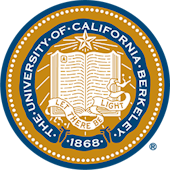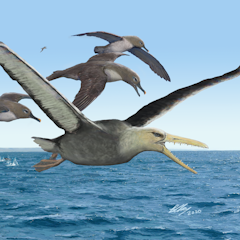
University of California, Berkeley

The University of California was chartered in 1868 and its flagship campus — envisioned as a “City of Learning” — was established at Berkeley, on San Francisco Bay. Today the world’s premier public university and a wellspring of innovation, UC Berkeley occupies a 1,232 acre campus with a sylvan 178-acre central core. From this home its academic community makes key contributions to the economic and social well-being of the Bay Area, California, and the nation.
Links
Displaying 61 - 80 of 209 articles

Pointing out the benefits of white privilege has become a racial justice rallying cry, but associating ‘white’ with ‘privilege’ in the classroom can harm academic performance among students of color.

All cultures have communicated their knowledge in diverse and marvellous ways throughout time. Failing to see the significance of this is racist and lazy.

There’s a bittersweet history to chocolate in America. At one plantation museum in Virginia, the story of enslaved chocolatier Caesar shows the oppression that lay behind the elite’s culinary treat.

Climate change is a true existential threat for small island nations, but the US has done little to help the Marshall Islands, which it administered for decades.

Ten years ago, we feared Tasmanian devils would be wiped out by a bizarre infectious facial cancer transmitted by biting. But new genetic analysis shows they are evolving to live with the disease.

Millions of miles of fences crisscross the Earth’s surface. They divide ecosystems and affect wild species in ways that often are harmful, but are virtually unstudied.

Computational methods could help identify conspiracy theories as they emerge.

President Wilson sanctioned segregation policies more than a century ago by targeting Black civil service workers.

What the polls and the candidates keep getting wrong about the United States’ largest minority group.

Paleontologists have discovered fossil remains belonging to an enormous ‘toothed’ bird that lived for a period of about 60 million years after dinosaurs.

Strangers used to call and stop by; now the most effective way to get people to vote involves getting groups of friends and neighbors to pressure each other to participate in democracy.

This year is seeing a high number of absentee and mail-in ballots and voting in the period before Election Day – but early voting periods are not new to the 2020 election.

The mail-in voting process has several built-in safeguards that make it hard for one person to vote fraudulently, and even more difficult to commit large-scale voter fraud.

While providing access to digital technology is important, it won’t even the digital playing field. If teachers can embrace all students’ digital interests as opportunities for learning, it would help.

New research points to why reopening elementary schools is the safest bet and what else needs to happen for schools to have the best chance of staying open.

Pandemic precautions have given new life to disposable plastic products, which the industry claims are more ‘hygienic’ than reusables. But critics say there’s no scientific evidence this is so.

A new study finds an association between living near active oil and gas wells in California and low birth-weight infants, adding to findings elsewhere on health risks from oil and gas production.

The scientific community is churning out vast quantities of research about the coronavirus pandemic – far too much for researchers to absorb. An AI system aims to do the heavy lifting for them.

Declaring an issue is a national emergency lets presidents act quickly and with few constraints. But once they get this kind of power, it’s hard to take it back – and it can produce bad policies.

Privileged children get to use phones in school while others face bans for ‘messing around’‘.
